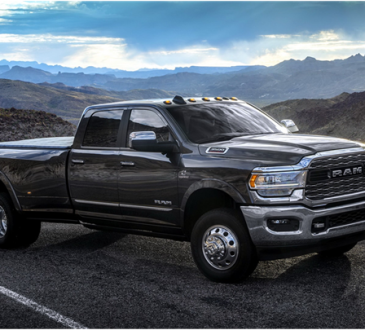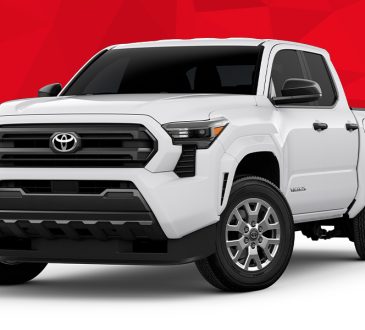
The trucking industry plays a pivotal role in transporting goods across the nation, providing essential services that keep supply chains moving. For those looking to enter this field, trucking jobs offer an opportunity for a rewarding and dynamic career. However, before hitting the road, it’s important to understand the key aspects of trucking jobs, including the types of roles available, requirements, challenges, and potential benefits. This guide will help you navigate the world of trucking jobs and set you up for success in the industry.
Types of Trucking Jobs
Trucking jobs vary widely, catering to different preferences and skill sets. Below are the most common types of positions available:
- Over-the-Road (OTR) Truck Driver: OTR drivers spend the majority of their time on the road, often driving long distances across state lines. These trucking jobs can involve weeks away from home, but they typically offer higher pay due to the extended hours and distance involved.
- Regional Truck Driver: Regional drivers cover shorter distances, usually within a specific geographic area. While they may spend less time on the road compared to OTR drivers, they often return home more frequently, offering a better work-life balance.
- Local Truck Driver: Local trucking jobs are often based within a specific city or region, meaning drivers return home each day. These roles typically involve shorter routes and lower pay compared to OTR or regional positions, but they provide a consistent schedule and more predictable hours.
- Specialized Trucking: Specialized trucking jobs involve transporting unique loads such as hazardous materials, oversized equipment, or refrigerated goods. These roles require additional training and certifications, but they can be highly lucrative due to the added responsibility and expertise required.
Requirements for Trucking Jobs
Before starting a career in trucking, it’s important to meet the basic requirements, which can vary depending on the type of job. The most common requirements include:
- Commercial Driver’s License (CDL): To operate a truck, a CDL is required. Obtaining this license typically involves completing a training program and passing written and driving exams. There are different classes of CDLs, depending on the vehicle’s weight and cargo.
- Driving Experience: Some trucking jobs may require a certain amount of driving experience, particularly those involving long-distance or specialized transport. Entry-level drivers may need to start with local or regional positions to gain the necessary experience before advancing to more demanding roles.
- Health and Physical Fitness: Truck drivers need to pass a Department of Transportation (DOT) physical exam to ensure they are fit to drive. Good physical health is important for the long hours spent behind the wheel and for maintaining focus and alertness while driving.
- Clean Driving Record: A clean driving record is essential for trucking jobs, especially for those in positions that require handling large or heavy vehicles. Traffic violations or accidents on your record can hinder your job prospects in the industry.
Challenges of Trucking Jobs
While trucking jobs offer many benefits, they also come with unique challenges that must be considered before pursuing a career in the field. These challenges include:
- Long Hours and Time Away from Home: Many trucking jobs, particularly OTR positions, require drivers to spend extended periods of time on the road. This can lead to long stretches away from home and family, which may be difficult for some individuals to manage.
- Physical Demands: Truck driving can be physically demanding, especially during long shifts. Drivers need to maintain alertness and focus, which can be challenging during extended hours on the road. The physical toll of sitting for long periods, combined with loading and unloading cargo, can also lead to health concerns if not properly managed.
- Regulations and Safety Standards: The trucking industry is heavily regulated, with strict safety standards set by the Federal Motor Carrier Safety Administration (FMCSA). Drivers must adhere to regulations regarding driving hours, rest periods, and cargo transport to ensure safety on the road. Violations of these regulations can result in fines and penalties.
Benefits of Trucking Jobs
Despite the challenges, trucking jobs offer a variety of benefits that make them an appealing career choice for many individuals:
- Job Security: The demand for truck drivers is high, and the trucking industry is expected to continue growing. With a shortage of qualified drivers, trucking jobs offer excellent job security and potential for career advancement.
- Competitive Pay and Benefits: Many trucking jobs offer competitive wages, with long-distance and specialized trucking roles often offering higher pay. Additionally, benefits such as health insurance, retirement plans, and paid time off may be available depending on the employer.
- Independence and Flexibility: Trucking jobs often provide drivers with a great deal of independence, especially in OTR and regional positions. Drivers are responsible for managing their own schedules and routes, allowing for flexibility in work-life balance.
Conclusion
Trucking jobs offer an opportunity for a fulfilling career in a growing industry, but they require careful consideration before hitting the road. By understanding the types of trucking jobs, meeting the necessary requirements, and weighing the challenges and benefits, you can make an informed decision about whether a career in trucking is right for you. With the right preparation and mindset, trucking jobs can provide long-term job security, competitive pay, and the freedom to travel the open road.




